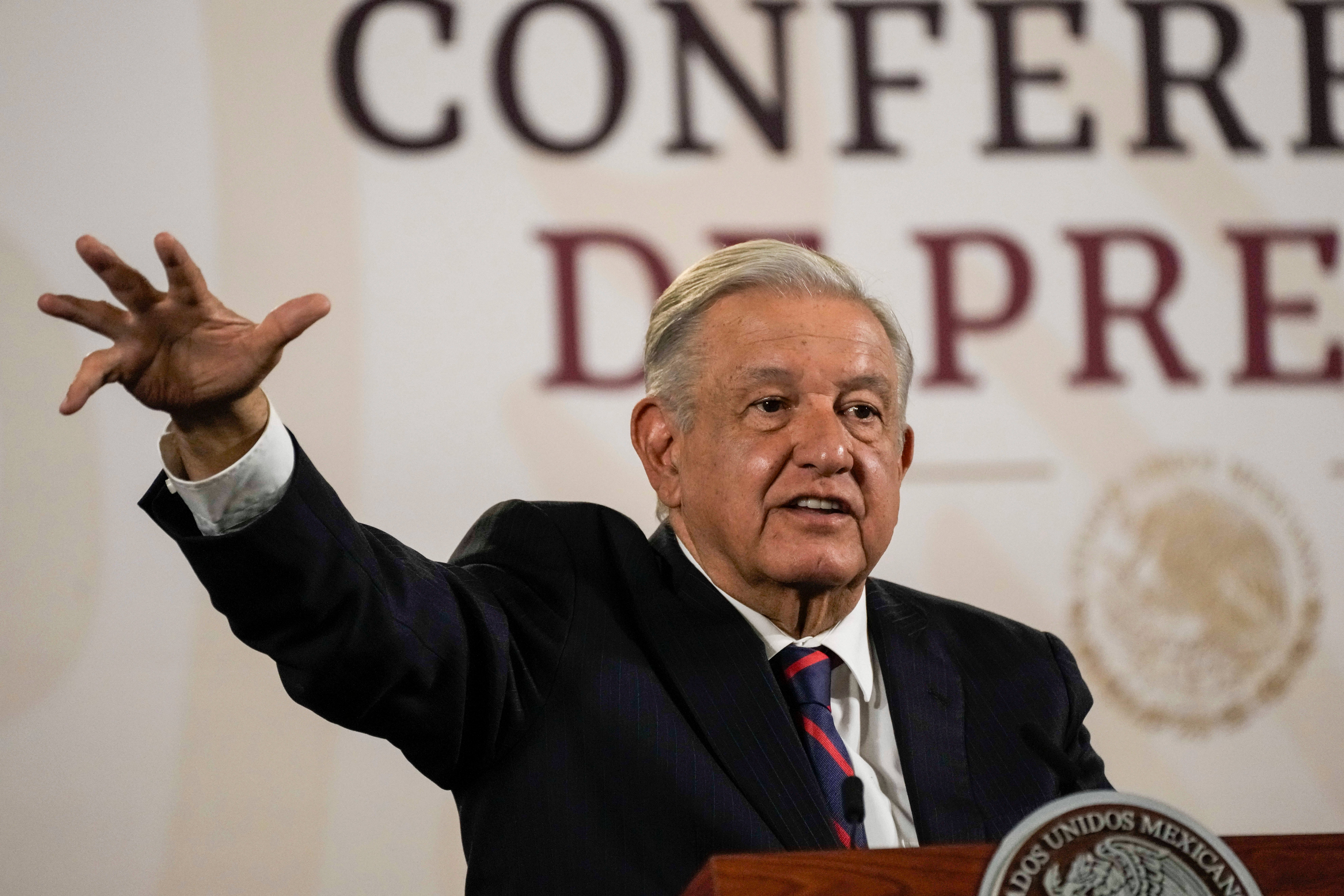US company rejects Mexico's criticism, buy-out offer, says president's projects hurt the environment
An American quarry company has rejected the Mexican president’s campaign of criticisms and closures, and his offer to buy its property on the Caribbean coast

Your support helps us to tell the story
From reproductive rights to climate change to Big Tech, The Independent is on the ground when the story is developing. Whether it's investigating the financials of Elon Musk's pro-Trump PAC or producing our latest documentary, 'The A Word', which shines a light on the American women fighting for reproductive rights, we know how important it is to parse out the facts from the messaging.
At such a critical moment in US history, we need reporters on the ground. Your donation allows us to keep sending journalists to speak to both sides of the story.
The Independent is trusted by Americans across the entire political spectrum. And unlike many other quality news outlets, we choose not to lock Americans out of our reporting and analysis with paywalls. We believe quality journalism should be available to everyone, paid for by those who can afford it.
Your support makes all the difference.An American quarry company on Monday rejected the Mexican president's campaign of criticisms and closures, as well as his offer to buy its property on the Caribbean coast.
In July, President Andrés Manuel López Obrador offered to buy the American company’s Caribbean coast property for about $385 million amid a bitter, years-long dispute.
Alabama-based Vulcan Materials said in a statement Monday that offer “substantially undervalues our assets.”
In papers filed on the case in an international arbitration panel, Vulcan Materials valued the almost 6,000-acre (2,400 hectare) property, located just south of the resort town of Playa del Carmen, at $1.9 billion.
The Mexican president has in the past threatened to expropriate the extensive property, claiming the pits it has dug to extract crushed limestone have damaged the fragile system of underground rivers and caves in the area.
But Vulcan Materials rejected the charge. “Our operations have not adversely affected underground caves, cenotes or archaeological sites. In fact, we have mapped, protected and preserved these valuable resources,” the company said in a statement.
Instead, the company alleged that some other quarries in the area have been operating unlawfully. “Unlike other quarrying sites that have been operating unlawfully to supply the Mayan Train, our operations were duly permitted,” the company said.
The Mayan Train is a pet project of López Obrador to build a tourist train around the Yucatan peninsula. Activists, cave divers and archeologist say the project has damaged the caves, which hold some of the oldest human remains in North America.
The president's office had no immediate reaction to Vulcan's allegations.
López Obrador has said in the past that the most attractive part of the property was the company's freight shipping dock — the only deep port on the coast's mainland — which he plans to turn into a dock for cruise ships. He says he wants to turn the rest of the property into a natural reserve.
“The Mexican government is using these political threats and false allegations to try to justify converting our property into a “naturally protected area,” which could — ironically — be used not to protect the environment but for commercial tourism purposes and naval operations, including cruise ship activity”, the company said.
López Obrador said he also wants to use the flooded pits that the company dug out of hundreds of acres of the limestone soil as “swimming pools” or an “ecotourism” area that would be operated as a concession by a private operator.
The huge pits are inhabited by crocodiles, which are a protected species in Mexico.
The company's dock at Punta Venado is the only one in the area that can handle cement, crushed stone and other shipments for the Maya Train. The 950-mile (1,500-kilometer) Maya Train line is meant to run in a rough loop around the Yucatan Peninsula, connecting beach resorts and archaeological sites.
López Obrador touts the train as a way to bring some of Cancun’s tourism income to inland communities that haven’t shared in the wealth. But there are no credible feasibility studies showing tourists would want to use the train.